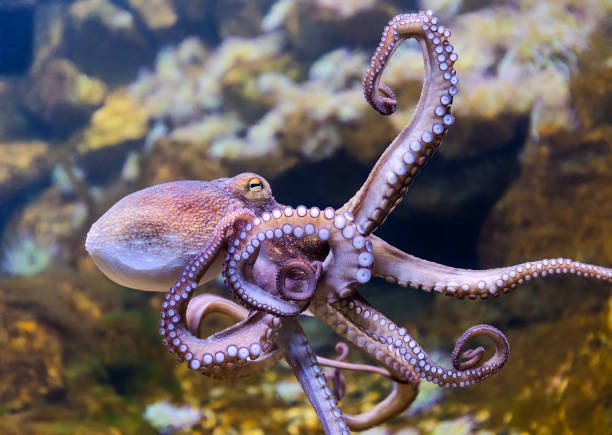The Fascinating World of Octopets: Unraveling the Complexities of Keeping Octopuses as Pets
The popularity of keeping marine animals as pets has given rise to an unconventional trend: octopus ownership. Delving into the intriguing world of Octopets, this article explores the complexities, responsibilities, and rewards of keeping these intelligent invertebrates.

A Glimpse into the Past
The practice of keeping octopuses as pets is not entirely new. It traces its roots back to the mid-20th century when marine biologists began keeping them in laboratories for research purposes. The octopuses’ intelligence and unique behavior sparked interest among enthusiasts, eventually leading to their introduction into the pet industry. Today, they are considered one of the most exotic and challenging pets to keep.
The Present Scenario
Currently, the common octopus (Octopus vulgaris) and the dwarf octopus (Octopus joubini) are the most popular species kept as pets. These species have adapted to captive environments to some extent, but they still pose significant challenges for pet owners. They require specific conditions, including appropriate water temperature, salinity, and pH levels. Moreover, their high level of intelligence demands mental stimulation and interaction, adding another layer of complexity to their care.
The Cost and Market Influence
The estimated price range for an octopus pet varies from $30 for smaller species to over $100 for larger ones. The market for octopets, though niche, has seen steady growth. However, it has also raised concerns among conservationists about the potential for overharvesting and the impact on wild octopus populations.
The Science Behind Octopets
Octopuses are renowned for their intelligence. Studies have shown that they can solve puzzles, escape from enclosures, and even use tools. This intelligence, coupled with their unique physiology, makes them fascinating but demanding pets. They require complex environments with plenty of hiding places and stimuli to keep them engaged.
The Responsibilities and Rewards
Keeping an octopus as a pet is a significant responsibility. It involves providing appropriate care, regular monitoring, and mental stimulation. Any deviation from their required conditions can lead to stress, disease, or even premature death. However, for those willing to take on the challenge, owning an octopus can be an incredibly rewarding experience. Observing their behavior, interacting with them, and understanding their unique perspectives can offer profound insights into one of the ocean’s most mysterious inhabitants.
In Conclusion
While the trend of keeping octopuses as pets offers a unique opportunity to connect with these remarkable creatures, it also presents significant challenges. It requires a deep understanding of their needs, an ability to provide specialized care, and a commitment to their well-being. For those willing to take on the responsibility, it’s a journey into an incredible underwater world that promises endless fascination and discovery.





